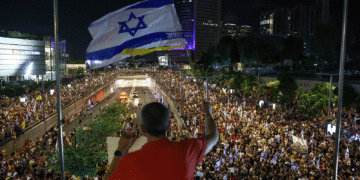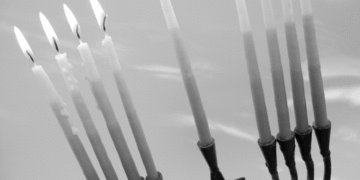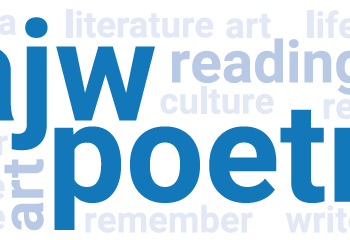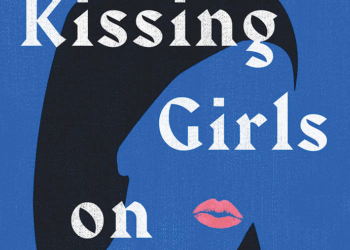Dror Moreh’s award-winning documentary, The Gatekeepers, provides a view from the top of Israel’s Shin Bet security system — and delivers a warning about the future
By MORDECAI SPECKTOR
It was reported earlier this year that Israeli Prime Minister Benjamin Netanyahu had not seen The Gatekeepers — and he had no intention to view it. Perhaps Bibi had been forewarned that the Israeli film, which was nominated for the Academy Award in the best documentary feature category, conveyed a critique of his government’s policies, regarding the long-running conflict with the Palestinians.
Or maybe the Israeli premier just doesn’t like documentary films.
During a visit in late June to the Jaffa home of Dror Moreh, who directed The Gatekeepers, I brought up Bibi’s shunning of the movie.
“Someone who is the representative of the prime minister, to say something like that is really, really stupid,” commented Moreh, regarding the message conveyed from Netanyahu’s office. “It means he doesn’t understand anything in communications.”
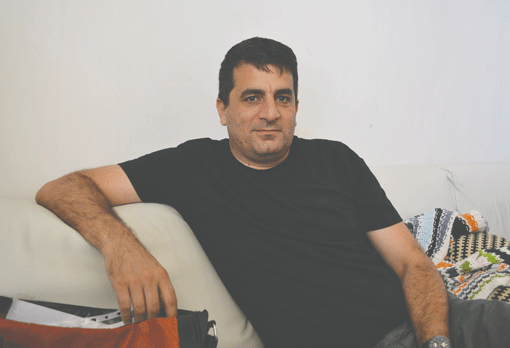
The Gatekeepers is an unprecedented look at Israel’s history over the past three decades, with the narrative provided mainly by the six former heads of Shin Bet, Israel’s vaunted domestic security service — the Jewish state’s version of this country’s FBI and Secret Service. The nonfiction film packs a dramatic wallop, as the intelligence chieftains describe real life cloak-and-dagger exploits in the war against Palestinian terrorists.
Moreh will discuss the making of The Gatekeepers, and the issues raised by the film, when he appears Nov. 20 at the Sabes JCC, as part of Culture Blvd III, the series hosted by the Israel Center of the Minneapolis Jewish Federation.
The Culture Blvd series has brought in some of Israel’s literary luminaries — Meir Shalev, Sayed Kashua, Etgar Keret, et al. — and the upcoming evening with filmmaker Moreh promises to be a provocative and fascinating event.
In addition to the Oscar nomination, The Gatekeepers won the Los Angeles Film Critics Association’s award for best documentary. And it was selected for screening at the Venice, Telluride, Toronto and New York film festivals.
On the morning of June 28, I took a taxicab from the Dan Tel Aviv hotel to Kikar Kedumim, the main plaza in Jaffa’s Old City. I called Moreh’s cell phone; he said that he would look for me on the plaza before St. Peter’s Church. Describing our respective positions by phone, we finally spotted each other, then went to Moreh’s cozy home, which is located in a prime spot adjacent to Jaffa’s picturesque artist colony.
Getting back to the interview and Netanyahu’s declaration of disdain for the acclaimed documentary, Moreh doesn’t believe it. The filmmaker thinks that Netanyahu “definitely… saw the film.”
Moreh mentioned that an expanded version of The Gatekeepers was shown on Israeli television. The 101-minute documentary was recast as a five-hour series, and broadcast on Israel’s Channel 1 over five nights. “Actually, this Sunday, the fifth part, the last part of the television series, is going to be broadcast in Israel. I’m sure that Bibi Netanyahu saw the film, knows about the film, whether he likes it or not — I don’t think he likes it.”
When the The Gatekeepers was aired on national television, the decision was made to add a panel discussion after each night’s episode. Moreh was furious about this attempt to spin the film’s message.
“I’m disgusted over the discussion and the people that Channel 1 put on after the program,” Moreh wrote on his Facebook page. “I have no doubt the discussion was a political dictate from above. The people chosen to participate were also carefully selected. Instead of letting the program and the series and the Shin Bet chiefs speak their piece, they chose a foolish and populist discussion that we’ve heard thousands of times. I very much hope the viewers fled to another channel!”
The Gatekeepers attracted a large TV audience this summer. “It’s beyond the dreams of what they expected it to be,” Moreh noted. “It rouses a lot of debate… vis-à-vis the message of the film, the shocking truth that is being revealed to the Israeli public by the heads of the Israeli Shin Bet — not by some leftists or by some anarchists — the center of the defense establishment in Israel.”
The Gatekeepers, prior to the Channel 1 broadcast in June, had a theatrical release and it was the “best grossing documentary film ever in Israel’s history,” according to the director. Theaters in Israel sold more than 80,000 tickets. The film also did decent box office locally, hanging around for several weeks, during its theatrical run at the Edina Cinema.
Perhaps it would be good to see The Gatekeepers prior to attending the evening with Moreh. The film is available now on Blu-ray and DVD from Sony Pictures Classics.
During our visit, I mentioned my avid interest in film, including the documentary genre. I mentioned the acclaimed director Errol Morris, whom I’ve interviewed on three occasions.
“I know him,” Moreh quickly replied. “He is my idol. The source of inspiration for The Gatekeepers came from The Fog of War,” Morris’ 2003 Oscar-winning documentary about Robert S. McNamara, who was the U.S. Secretary of Defense during the Vietnam War.
The two films share a similar aesthetic, particularly in the use of head-on interviews. Morris employs a device called the Interrotron, which is similar to a teleprompter, and allows the interview subject and the interviewer to each sit before a camera, so they are virtually looking at one another.
“The Fog of War, for me, is the best documentary film I’ve seen — after The Gatekeepers,” added Moreh.
In his director’s note, in the press notes for The Gatekeepers, Moreh says: “The idea to do this movie came to me while I was working on my previous film, Sharon [2008]. From my discussions with the prime minister’s innermost circle of advisors, I learned how the critique of some of these Gatekeepers influenced Sharon’s decisions to disengage from Gaza.”
Moreh acknowledges that he has received both kudos and hate mail for this film — Israelis are not neutral about The Gatekeepers, which should be seen by anyone interested in recent Middle East history.
The oldest of the Gatekeepers is Avraham Shalom, who ran Shin Bet from 1980 to 1986. This paradoxical character says, “In the war against terror, forget about morality. Find morals in terrorists first.” Shalom was brought down by the “Bus 300” affair, in which Shin Bet agents summarily executed two Palestinian terrorists who had been captured after hijacking a bus from Tel Aviv to Ashkelon. A front-page newspaper photo showed two surviving terrorists after the incident had been concluded; Shalom reportedly ordered Ehud Yatom, Shin Bet chief of operations, to execute the two men. The scandal eventually led to Shalom’s downfall.
Also, Carmi Gillon describes his personal psychological disintegration after a Jewish right-wing extremist, Yigal Amir, assassinated Prime Minister Yitzhak Rabin, in Tel Aviv on Nov. 4, 1995. Before this debacle forced Gillon to resign his post, Shin Bet managed to assassinate “The Engineer,” Yahya Ayyash, who allegedly masterminded some of the bloodiest terror attacks within Israel. Gillon describes in the film how the agency managed to get a cell phone packed with a detonator and explosives to Ayyash. When he answered a call, the bomb exploded next to his head.
For all of Shin Bet’s derring-do, Palestinian terrorism continued at a furious pace in the early years of this century. “We wanted security, and we got more terrorism,” comments Ami Ayalon, who was the Shin Bet head from 1996 to 2000.
Avi Dichter, who lead the security service from 2000 to 2005, declares, “You can’t make peace using military means.”
From 75 hours of videotaped interviews, and 30 hours of audio interviews, Moreh crafted an exciting documentary, which also delivers a stinging critique of the continuing Israeli occupation of the West Bank. In this respect, the director has assimilated the warnings coming from the six Gatekeepers.
At the end of our hour-long chat, Moreh said that a frightening drift to intolerance is imperiling Israeli society. “The amount of racism, the amount of hatred, the amount of youngsters who are completely brainwashed is getting bigger and more scary than ever,” he said, and added that the six former heads of Shin Bet he interviewed at length “are really worried, most of them, for the future of the State of Israel, as a democratic, Jewish vibrant state… I created that film definitely from that fear.”
***
Dror Moreh will discuss The Gatekeepers 7 p.m. Wednesday, Nov. 20 at the Sabes JCC. The talk will be moderated by Steve Hunegs, director of the Jewish Community Relations Council of Minnesota and the Dakotas (JCRC). Tickets are $12, general admission; $10 for JCC members; and $6 for students and seniors. For information, go to: jewishminneapolis.org/cultureblvd.aspx
“An Evening with the Gatekeepers” is the third and final event of Culture Blvd III, an initiative of the Israel Center of the Minneapolis Jewish Federation. The event is co-sponsored by the Sabes JCC, the St. Paul JCC, and JCRC. Media sponsors are the American Jewish World and TC Jewfolk.
(American Jewish World 11.8.13)


